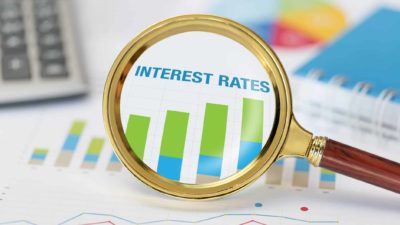ASX 200 companies, as well as the wider economy, are driven by and large by consumer demand. And demand, to a certain extent, depends on healthy wages. Recent statistics by the Australian Bureau of Statistics (ABS) confirm what the Reserve Bank of Australia (RBA) has been saying for a while – wage growth in Australia is non-existent.
For the third quarter (Q3) of this financial year, wages grew in Australia by only 0.6%. Private sector wages grew at the national average while public sector salaries were only 0.4% greater. Given an inflation rate of 0.6% for the quarter, the real wage growth in Australia was zero.
The S&P/ASX 200 Index (ASX: XJO) took a beating today after falls in US stock markets. By the market's close, the ASX 200 was down a massive 1.9% to erase all gains made in the previous 2 months of trading. It seems fears of inflation in the US are spilling over into our side of the world and are, at least partially, impacting the ASX. After today's ABS announcement, do these fears still hold water?
Inflation and the ASX 200
Investors and policymakers have been seemingly at odds over whether inflation will be a run-away freight train or a turgid tram in 2021. Arguably, a significant part of the falls seen on the ASX 200 in recent weeks has been because of inflation panic, either locally or worldwide.
Dr Phillip Lowe, however, said at the last meeting of the RBA Board he did not expect interest rates to be increased until 2024 at the earliest. The main reason? Low inflation.
[The RBA] will not increase the cash rate until actual inflation is sustainably within the 2 to 3 per cent target range.
For this to occur, the labour market will need to be tight enough to generate wages growth that is materially higher than it is currently. This is unlikely to be until 2024 at the earliest.
Today's release from the ABS does little to assuage the concerns of the RBA but may allay the phobias of some ASX 200 investors.
CreditorWatch chief economist Harley Dale largely agrees with the RBA's assessment.
"The ABS Wage Price Index for the March 2021 quarter reinforces the point that Australia needs a substantially tighter labour market to generate decent wage growth," he said.
"However, if we dig a bit deeper, it appears that improving business conditions may be bringing some businesses back to the table in considering wage increases they deferred during 2020. The implication from today's update, though, is that deferrals of wage increases outweigh any positive outcomes from decisions and/or consultations on private business wage increases."
Wage growth and the economy
Along with the RBA's view that low wage growth is bad for longer-term inflation and economic growth, there are other economists arguing the same.
In a recent piece for The Conversation, Jim Stanford argues raising the minimum wage is a net benefit for the economy.
…higher minimum wages do not generally destroy jobs – and in certain conditions may actually boost employment.
Reasons for this include:
- Higher labour force participation and productivity among low-wage workers.
- Better job retention and lower turnover, reducing costs of job search and training.
- Reducing the "monopsony" power of very large employers to suppress wages.
- More money in workers' pockets, leading to more consumer spending.
A growing economy is, intuitively, important for ASX 200 shares. As we saw last year, the massive economic decline induced by the COVID-19 pandemic saw the share market reach its lowest level in over 7 years. If economists are right, today's sluggish wage growth does not portend well for a continued economic recovery.









